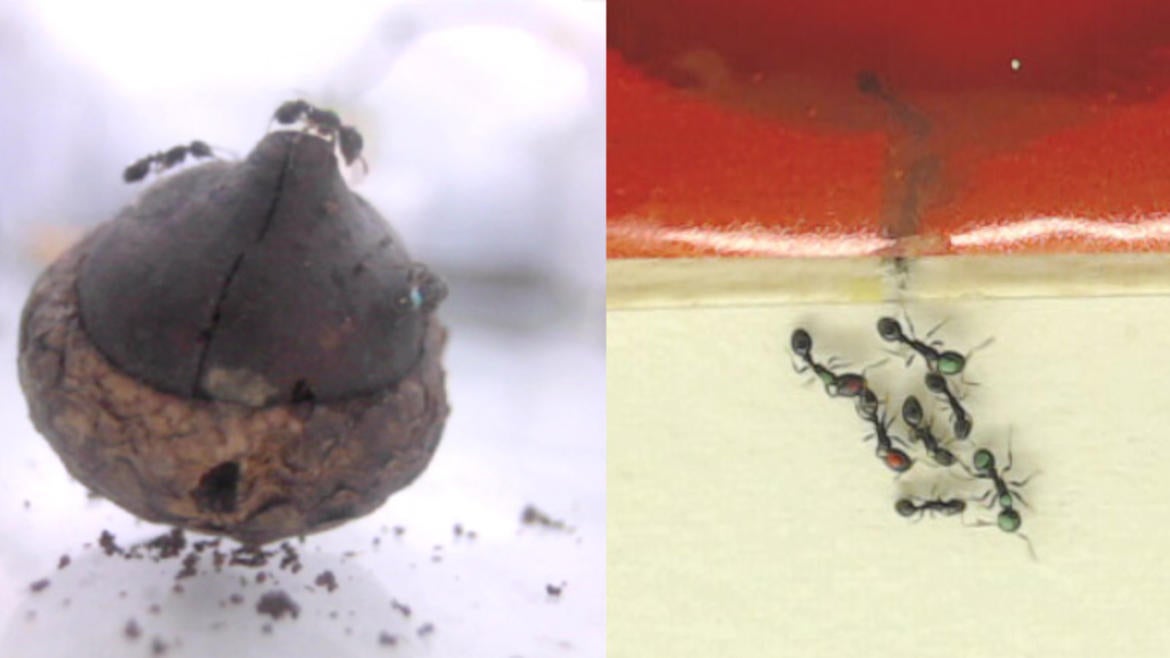
Title: Collective Behavior in a Slave-Making Ant: Coordination and Decision-Making During Raids
Abstract:The slave-making ants have fascinated biologists for their charismatic brood-raiding behavior and have served as a model of host-parasite co-evolution; however the mechanisms of raiding behavior remain poorly understood. I first describe how the workers of the North American slave-making ant, Temnothorax americanus, attack other ants in highly coordinated nest take-overs. As a group behavior, the workers must, therefore, collectively agree where to launch their attack. After establishing which suite of host characteristics, like quantity of brood, lead to the best outcomes, I show that colonies choose hosts at random. Why then should colonies disregard relevant host variation? Theoretical work from mate-choice predicts low-choosiness ought to evolve when there are (1) low encounter rates, (2) high time constrains, or (3) low variability in quality. To test these hypotheses in the slave-making ants, observations of lab raids were combined with spatial field data on host distribution and brood phenology. Variation in host nest quality was relatively high, and thus unlikely to favor low acceptance thresholds of slave-maker colonies; however, raiding is strongly constrained by both host brood availability and low encounter rates with host colonies in the field. The implications of these results are that slave-maker colony raiding decisions are selected to maximize the number of raids per season, and not to selectively exploit the few most profitable ones.